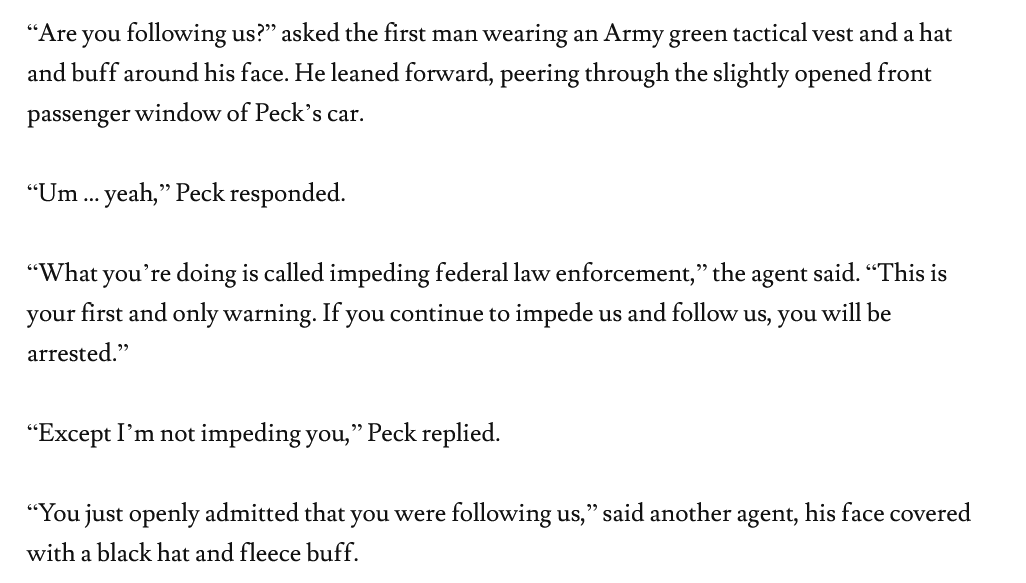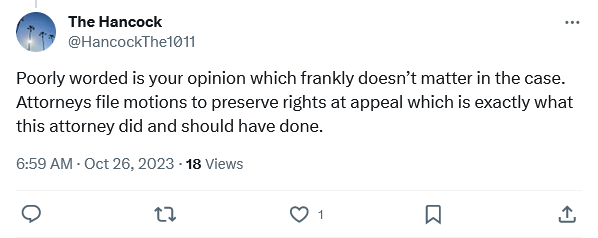
Criminal law professor at the University of North Carolina.
Director of the Prosecutors and Politics Project (@ppp_unc).
Author of "Punishment Without Trial."
2 subscribers
How to get URL link on X (Twitter) App


 Here is a link to the story, which includes the video. (Many thanks to @Taniel for posting it)
Here is a link to the story, which includes the video. (Many thanks to @Taniel for posting it)




 Walz signed a bill that required schools to provide free menstrual products.
Walz signed a bill that required schools to provide free menstrual products.

 Let's start with the first claim in the thread--the idea that the humanities "aren't empirical."
Let's start with the first claim in the thread--the idea that the humanities "aren't empirical."
https://twitter.com/tyler_a_harper/status/1717935971985924576Those who are pushing that worldview are doing so with the best of intentions. They see suffering and injustice in the world, and they want to use their position and limited power to change it.




 Let's start with the obvious point that, if you want the court of appeals or the Supreme Court to reverse an existing case or doctrine, then you have to file a motion on the issue in the trial court to preserve the issue
Let's start with the obvious point that, if you want the court of appeals or the Supreme Court to reverse an existing case or doctrine, then you have to file a motion on the issue in the trial court to preserve the issue
https://twitter.com/kyledcheney/status/1696179247637774783A retaliation claim will go nowhere because of Nieves v. Bartlett, 139 S. Ct. 1715 (2019). There is no doubt that DOJ has probable cause to support its charges against Trump.
https://twitter.com/kyledcheney/status/1696173260524646820?s=20
https://twitter.com/AoDespair/status/1574778035978518528For all of the public attention on crime & crime spikes, I don't understand why police don't get more criticism when it comes to how awful they are at actually solving crimes. Less than 1/3 of robberies, burglaries, and rapes are solved, and only about 60% of homicides.

https://twitter.com/latimesopinion/status/1541753389184417795I appreciate the instinct to try and defend the Court's recent opinions as application of neutral principles to controversial political topics.
https://twitter.com/qjurecic/status/1522207207873552384First, to clarify, I don’t think anyone expected the Trump Justices to hold the line on Roe/Casey. So, for example, a decision upholding a 15 week ban would obviously erode Roe, and that sort of erosion was expected despite reassurances during the confirmation process.
https://twitter.com/AnthonyMKreis/status/1521917571636805633Because if all law is just politics, then there are no illegitimate moves—just power to effectuate those moves.

https://twitter.com/jerusalemdemsas/status/1512051260593254400First, there’s the obvious difference in mission between advocacy groups and academics. The former are trying to accomplish a particular agenda, while the latter are trying to answer questions about the world. Ideally academics publish those answers no matter what they find.



https://twitter.com/MikeSacksEsq/status/1460284668880818182Criminal cases--like other cases--are sometimes a dispute about law, rather than a dispute about fact. That is to say, the defendant argues that what he did isn't illegal, not that he didn't actually do what the prosecution accuses him of.


https://twitter.com/MacFarlaneNews/status/1440774189854572548If this were a story about anywhere else in the country, the decision to file in federal, rather than state court, would also change your prosecutor. The US Atty's office would handle a federal case, while the local prosecutor would handle a state case.